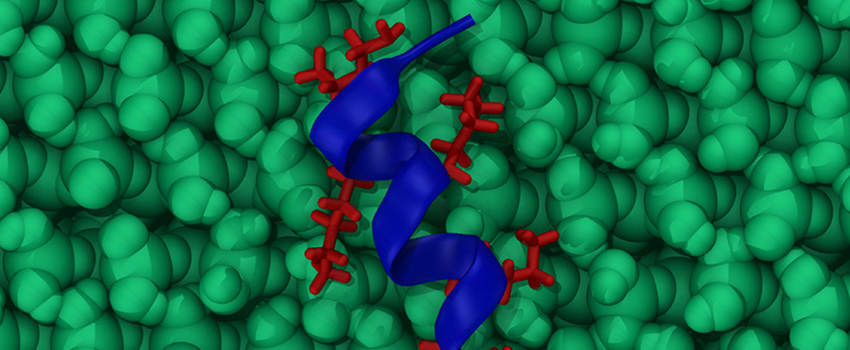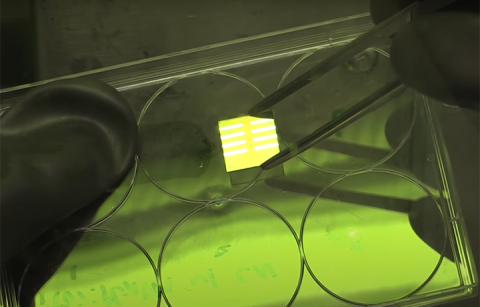
Overview
Ever-expanding streams of data from high-throughput experiments, industrial sensors, advanced instrumentation, and simulation are fundamentally changing chemical engineering. Our faculty are at the forefront of this data science transformation. They’re using machine learning, computational molecular science, and high-performance computing to improve semiconductors and solar cells, characterize materials, and discover novel renewable chemicals, among other cutting-edge projects.
Research topics
- Bioinformatics & omics
- Genetic control systems
- Multiscale simulations & modeling
- Predictive control
- High-throughput imaging and analysis
- Molecular data science
Featured research clusters
Molecular simulation
Faculty: Beck, Carothers, Sherman
We utilize molecular- and quantum-mechanics simulations to understand how molecules behave and interact in complex settings. We also build new methods and tools for enhanced sampling and scalable data analysis. Our simulations serve a variety of application spaces including human health, energy and the environment.
High-throughput experimentation and data analytics
Faculty: Hillhouse, Marchand, Mittal, Nance, Pozzo
Our research enables combinatorial sampling, screening and adaptive online high-throughput experimentation for identifying promising molecules and materials for cutting edge applications: photonic and electronic energy conversion and storage, medicine, and more.
Molecular design
Faculty: Bagheri, Beck, Carothers, Hillhouse, Nance, Posner, Pozzo, Schwartz, Sherman
We create and employ cutting edge molecular data science methods such as machine learning for the design of new molecules and materials. Example applications include pharmaceuticals, energy storage, and separations.
Reaction engineering
The atomistic motion of reactant molecules governs chemical reactivity. We create and apply methods which combine ab initio simulations with machine learning to accelerate the design of kinetics. Our research has a broad range of applications, from drug and catalyst design to industrial reactors.
Campus opportunities
eScience Institute
The eScience Institute empowers researchers and students in all fields to answer fundamental questions through the use of large, complex, and noisy data.
C-HACK: Chemical engineering hackathon
Python tutorial and team-based problem solving for undergraduates
Research Computing Club
A student organization that facilitates access to and training for UW’s shared super computing cluster, Hyak, and cloud computing resources through the Cloud Credit Program
REU in Data-enabled Science and Engineering
This REU provides support for a select group of undergraduates to participate in research under the mentorship of UW ChemE’s world-class faculty and graduate students. Students complete a nine-week immersive research project leading to an abstract and poster
In the curriculum
- Data science courses at UW
- ChemE undergraduate focus area in data science
- ChemE undergraduate Nanoscience and Molecular Engineering (NME) Option program
- Master of Science in Chemical Engineering, Data Science Track
- Advanced Data Science graduate degree option
Learn more
- Data Science for Chemical Engineers
By David Beck, Jim Pfaendtner, James Carothers, and Venkat Subramanian - Enabling Chemical Engineering with Data Science
By David Beck - Special data science issue of The Electrochemical Society Interface
Edited by Dan Schwartz, Matt Murbach, and David Beck



